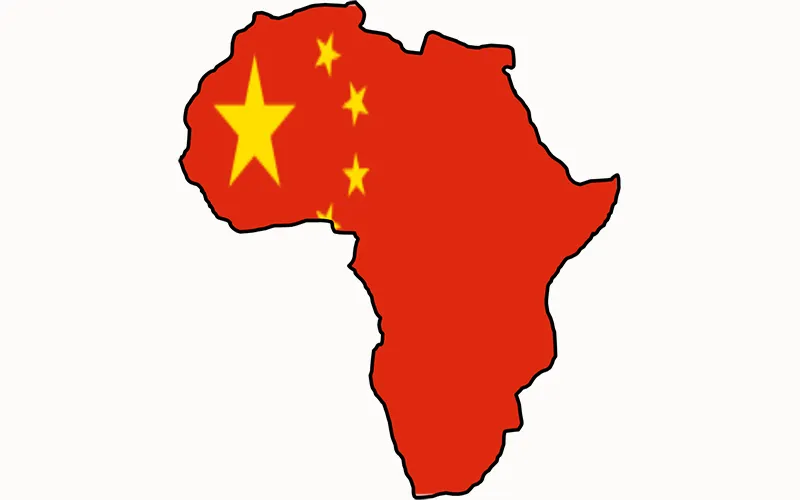The Sino-African relationship is almost six decades old and has progressed from a single to multi-dimensional relationship. The first phase of the relationship, from 1948 to 1978, was an initiative from China to establish diplomatic ties with African countries that were free from colonial rule. The second phase began with the initiation of reforms in China in 1978 and ended with the Cold War in 1989.
The relationship stagnated after that and was rejuvenated only in 1996 with the visit of the then Chinese President to Africa. A forum on China-Africa cooperation was established. Since then, trade and investment ties between the partners have blossomed. The total trade between the two, which was only one per cent in 1995, saw a compound annual growth of about 25 per cent in 2013.
Total trade between the two reached $210 billion in 2013. Importing almost 80 per cent of minerals from Africa, China has overtaken the US as the world's largest net importer of oil. China's exports to Africa are a mixed bag, leading to China becoming one of the largest trading partners of Africa. Africa seeks to satisfy four broad interests of China i.e, politics, economics, security and ideology. From the political view point, Africa supports China's 'One China' policy at multilateral levels. At the economic level, resource-rich Africa and its burgeoning population provides a ready market for China.
Also, the non-democratic set up in Africa supports the ideology of China to exercise its political control over the continent. However, growing Chinese investments in Africa has also led to scepticism and insecurity among Africans resulting in security issues for Chinese investors. Sino-African relations are often termed as a 'Win-Win' arrangement. With global attention being on boosting south-south cooperation, most of African economies have gained in importance. For several years, Chinese investments were concentrated in countries rich in natural resources like Algeria, Nigeria, South Africa, Sudan and Zambia.
Big investors like Sinopec, China National Petroleum Group, China State Construction Engineering Corporation and China Metallurgical Group Corporation formed partnerships with state oil companies in Nigeria, Angola, Sudan, Egypt, Chad and Niger. However, recent years have seen diversifications as Chinese firms have begun to branch out their investments into manufacturing, transport, real estate and construction. Countries like Ethiopia and Congo are getting more attention now. In 2013, Tanzania became the largest trading partner of China, with about 500 Chinese firms operating in the country.
It is expected that there will be new Chinese investments blooming in Africa. For instance, the new administration in China has proposed $30 billion credit loans to Africa for cross-border and inter-regional African infrastructure construction. The Chinese have also extended support in personnel training, capital accumulation and trade to foster China-Africa ties.
For Africa, investments in infrastructure, service sector expansions and increment in agricultural productivity is the result of China's emergence as one of Africa's main trade and investments partners.If this continues, Africa is likely to grow at a rate of 5.1 per cent in 2017. China's support has resulted in manufacturing growth such as the Huajian Shoe factory in Ethiopia which opened in 2012. It turned profitable in its first year of operations. For China as well, the relationship is one worth nurturing. Africa provides raw materials, both natural resource and non natural-resource, for Chinese industries.
Further, cheap Chinese products find ready markets in Africa. The low value of Yuan compared to other major world trading currencies attracts foreign importers and boosts demand for Chinese goods. However, the picture is not that rosy as both partners pursue different economic strategies. According to many Africans, Chinese products are poor quality and their low prices are seen to be a strategy to destroy the local industries of Africa.
Many see China to be practicing a new form of imperialism in Africa as it imports primary goods from Africa and exports manufacturing goods to Africa, without transferring skills to the continent. China-Africa ties are not free from challenges but there is immense potential that exists for Africa which can be nurtured through this relationship. Africa can learn a lot from China's growth story.
(The authors are researchers with Observer Research Foundation, Delhi)
Courtesy: The Pioneer
The views expressed above belong to the author(s). ORF research and analyses now available on Telegram! Click here to access our curated content — blogs, longforms and interviews.




 PREV
PREV

